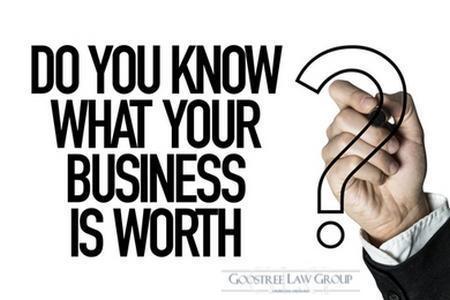How Does Goodwill Affect a Professional Practice During a Divorce?

Married couples who choose to get a divorce will need to address multiple legal issues, including how to divide their marital property. Determining a fair and equitable division can often be a complex matter, especially if one or both spouses own a business. In these cases, a business valuation will need to be performed, and if a business is part of the marital estate, a couple will need to divide business assets alongside other property. Those who own professional practices will often be concerned about whether they will be able to continue owning and operating their business after getting divorced. Determining the proper value of these practices is an essential part of the property division process, and the goodwill associated with a practice may need to be considered.
What Is Goodwill?
A business will have a variety of tangible assets that will need to be considered, such as equipment or accounts receivable. However, a professional practice will often have intangible assets as well, and the value of these assets may not always be immediately evident. Goodwill is an important type of intangible asset, and it will involve added value due to a business’s reputation, its relationships with customers, and other aspects above and beyond its tangible assets.
The goodwill of a professional practice will need to be considered when performing a business valuation and determining whether certain business assets should be divided between divorcing spouses. There are generally two different types of goodwill that may be considered:
-
Enterprise goodwill - This type of goodwill is associated with the business itself, and it represents the value of a business that cannot be attributed to tangible assets. Since this type of goodwill is transferable, it may play a role in valuation when a couple plans to sell a business or professional practice during the divorce process.
-
Personal goodwill - This type of goodwill is associated with a practitioner or person who works at a business. For example, a dental practice may have built a client base due to a dentist’s reputation as someone who provides quality care and forms personal connections with their patients. Since this type of goodwill is not transferable, it will usually be considered in cases where one spouse will retain ownership of a professional practice. Personal goodwill will usually be considered to be a marital asset if it can be attributed to the marriage, such as when a person was able to pursue an education with the help of their spouse, or when a professional practice built a positive reputation due to the efforts both spouses put toward operating the business.
Determining the monetary value of goodwill is not always easy, but it is an important consideration during the property division process. Depending on whether one spouse wishes to continue owning and operating a professional practice, whether the spouses plan to sell a business, or whether the parties expect to continue co-owning and co-managing a professional practice after getting divorced, evaluating both enterprise and personal goodwill can ensure that they will be able to divide all marital assets fairly and equitably.
Contact Our St. Charles Business Valuation Attorneys
If you or your spouse own a professional practice, you will want to be sure you fully understand its value during your divorce. Goostree Law Group can help you protect your rights and interests as you divide your marital property, and we will advocate on your behalf to make sure you will have the financial resources you need. Contact our Kane County property division lawyers at 630-584-4800 to arrange a free consultation.
Sources:
https://www.valuadder.com/glossary/business-goodwill.html
http://www.unm.edu/~parkman/Goodwill.PDF
https://www.ilga.gov/legislation/ilcs/ilcs4.asp?ActID=2086&ChapterID=59&SeqStart=6000000&SeqEnd=8300000











